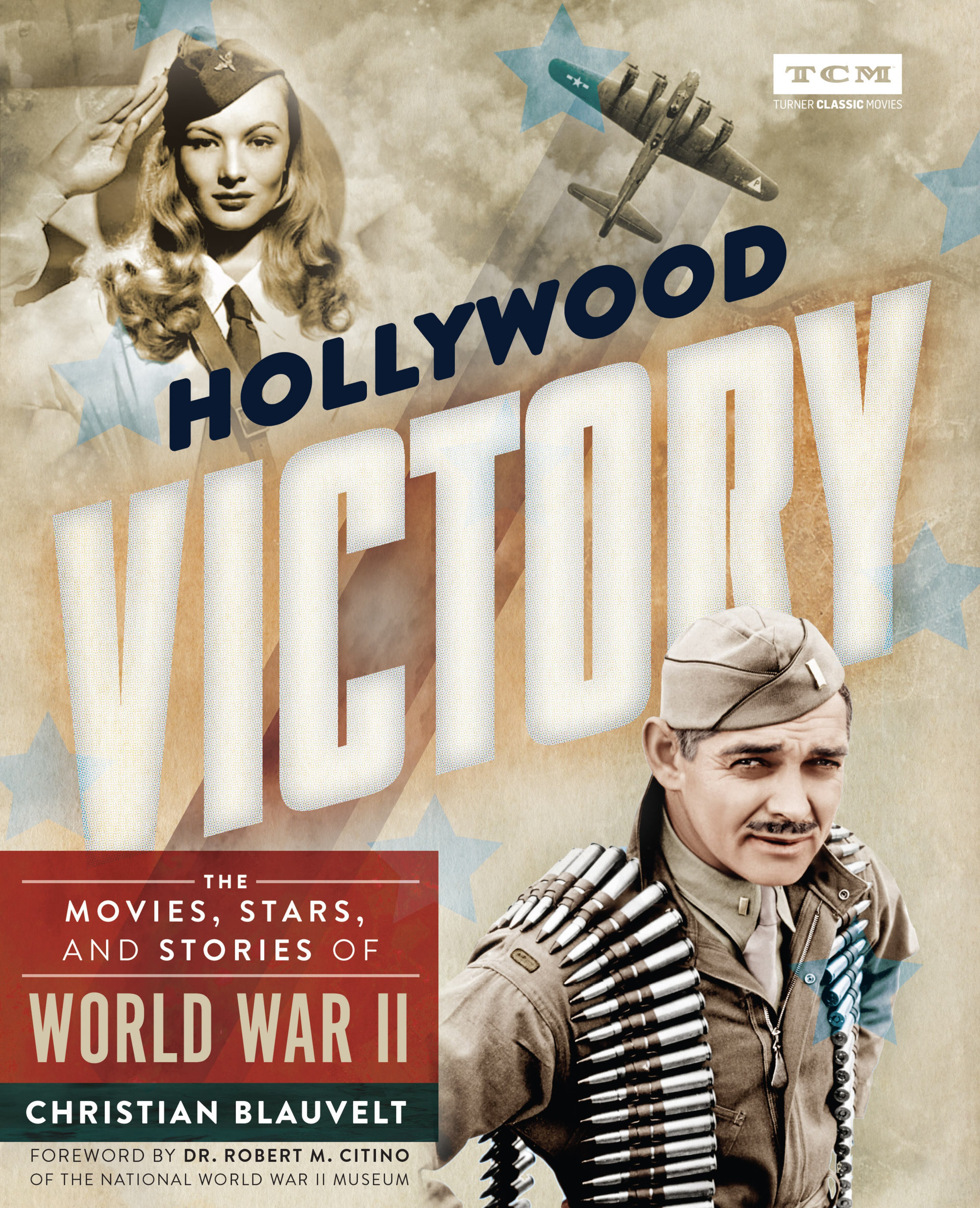‘Hollywood Victory’ explores the power of film during World War II

The maturation of Hollywood movie studios came fast and furious in the 1930s, the power of the movie star ascendant with the likes of Rita Hayworth, Mickey Rooney, Jimmy Stewart and Clark Gable becoming household names.
But film was largely a world of escapism during the Great Depression as Americans turned inward.
Pearl Harbor and World War II changed that quickly. Many of those stars, from Henry Fonda to Douglas Fairbanks Jr., fought on the front lines. Others like Bette Davis, Lena Horne and Carole Lombard made huge contributions on the home front. And entertainers like Bob Hope and Marlene Dietrich, risking their own lives, kept morale up by traveling the world to entertain troops face to face.

“Hollywood Victory” ― a book written by Indiewire journalist Christian Blauvelt and published by Running Press and Atlanta-based Turner Classic Movies ― provides a pithy but thorough overview of how stars set aside their egos to focus on the moral cause of taking down the Nazis and the Japanese. The glossy, heavily illustrated book comes out Nov. 2.
“It’s an extremely lively read spiced up by hundreds of period photos,” said Robert Citino, senior historian at the National World War II Museum in New Orleans. He wrote the foreword for the book. “You have this modern graphic approach and a really contemporary sensibility.” He said he has used it several times already for reference.
Blauvelt, in an interview with The Atlanta Journal-Constitution, said he did most of the research before the COVID-19 pandemic but wrote it during the peak lockdown period.
“It felt odd given that we were living through the greatest crisis since World War II,” said Blauvelt, who previously wrote a book for TCM about films set in New York City. “Just comparing and contrasting the level of sacrifice people endured in the 1940s as opposed to the resistance today is very striking.”
The Florida resident recounts the Hollywood caravan of stars that went city to city by train to sell war bonds. Actors Bette Davis and John Garfield opened the Hollywood Canteen for soldiers set to leave for Pacific battle where top-flight actors would serve drinks, offer dances and entertain the troops for free. (Some rules to keep it PG: no alcohol, no exchange of addresses and no second dances with the same soldier.)
Blauvelt spotlights individual war efforts like that of A-list actor Jimmy Stewart, who signed up voluntarily for service at the relatively advanced age of 32, far older than typical eligibility at the time. Over four years, he eventually became a colonel, flying B-24 bombers over Germany well into 1945.
One of the more trenchant figures is Clark Gable, star of “Gone With the Wind,” who lost his beloved wife Carole Lombard to a plane crash while she was promoting war bonds. He went on to fight the war in Europe as an aerial cameraman and bomber gunner. Adolph Hitler offered a reward to any Nazi who could capture him. They did not succeed.

President Franklin Delano Roosevelt knew the power of media at the time and used it to his advantage. He commissioned some of the biggest names in Hollywood like Orson Welles, Frank Capra, Walt Disney and Alfred Hitchcock to create propaganda films that helped get more Americans to volunteer to fight.
And film was a powerful diversion during a time of rationing and death. Americans watched movies, on average, twice a week during World War II. When women were working all hours in factories while the men were overseas, theaters would hold showings at 2:30 a.m. to accommodate them, Blauvelt said.
The author doesn’t shy away from America’s flaws, the baked-in racism and sexism of that era, the anti-Semitism that kept Americans from engaging against Hitler earlier.
At the same time, movie studios ― seeking to help encourage more Black Americans to enlist ― shot a handful of films like 1943′s “Cabin in the Sky” with all-Black casts geared to that audience. “There was a real desire for the first time in a major way to reach out to a Black audience and engage them and feel included in the American experience,” Blauvelt said. “These are films about African Americans living their lives unfettered by white people.”
The book also features German immigrant actors who embraced playing noxious Nazis in movies and Chinese Americans who eagerly played evil Japanese military leaders.
“You could argue they contributed to the internment of Japanese Americans,” Blauvelt said. “At the same time, they had relatives back in China and Korea under occupation and suffering so horribly. It was a patriotic duty for them to put out these anti-fascist movies.”
While all the reporting made Blauvelt only gain respect for many of the Hollywood figures of the time, one exception was “Citizen Kane” cinematographer Gregg Toland. Toland created a film “December 7th” that “was so racist in its anti-Japanese sentiment that John Ford had to cut out huge portions of the movie,” he said. “Here was a recognition that despite how horrible Pearl Harbor was, we can’t blame all Japanese people.”

Unfortunately, a lot of the modest progress Hollywood made regarding inclusion and social discourse did not stick. Anti-Communist fervor led to the blacklist, an effort to kick supposed Communist Party members and sympathizers out of Hollywood.
“Progress is not a straight line,” Blauvelt said.” “There was a major retreat after the war ended. There were whole decades without a lot of progress until the 1970s when Hollywood again gained the confidence to tell a greater variety of stories.”
ON TV
“Hollywood Victory” evening on TCM on Nov. 4
8 p.m. ‘Confessions of a Nazi Spy” (1939)
10 p.m. “Hold Back the Dawn” (1941)
12:15 a.m. “Edge of Darkness” (1943)
2:30 a.m. “Air Force.” (1943)
4 a.m. “Courage of Lassie” (1946)
Author Christian Blauvelt will provide context.



